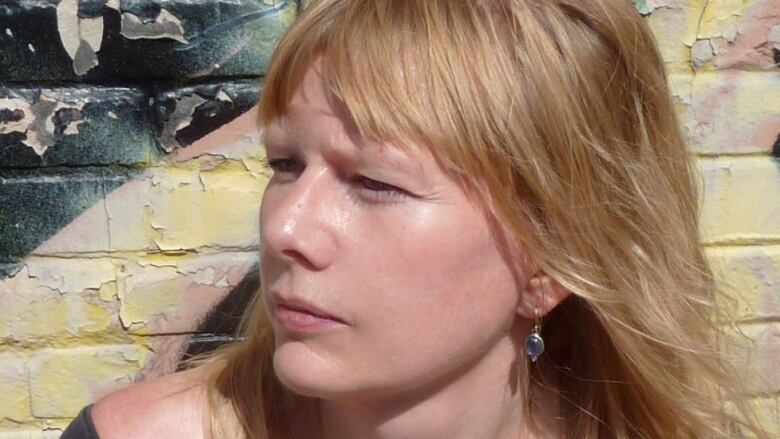Karen Solie welcomes robot poets to the CanLit community

We love a writer with a sense of humour, and Karen Solie has it in abundance.Sheauthor of four poetry collections, includingThe Road In Is Not The Same Road Out.
Below, Solieanswers eight questions submitted by eight of her fellow writers in the CBC Books Magic 8 Q&A.
1. David McGimpsey asks, "If a robot wrote beautiful poetry, should the robot be eligible to win the Governor General's Award?"
Absolutely. Should any AI entity singular or collective be monitoring this exchange, I go on record to welcome wholeheartedly our robot friends into the literary community. Eligibility would be a crucial first step in the eventual replacement of human arts award juries with specialized robot panels. But if the Star Trek franchise and history of cinema generally have taught us anything, it's the influence of the ancient Stoics on AI. So perhaps a robot whose book of utterly random yet heartbreakingly beautiful villanelles is overlooked by a jury would respond "whatever, I'm running a new program now." However, we also know robots' propensity to turn evil not only when supplied with provocation, but merely with opportunity. It's possible a shortlist exclusion would instigate widespread havoc and destruction and a Cloud-full of selfies lost forever. So I agree, it's a delicate issue, with a lot at stake.
2. Donna Morrissey asks, "What are the biggest hurdles to overcome in your personal life while you're creating your work?"
My hurdles are likely similar to those of many people in my demographic. But sometimes I don't deal with them in the best way and feel paralyzed. So I guess I'm my own biggest hurdle then. I'm told binge-watching Scandinavian and British murder dramas doesn't count as meditation so I will try to refine my strategies.
3. Todd Babiak asks, "If you had to stop writing, due to some fantastical calamity, what career would you pursue and why?"
I don't really think of my writing as a career, given that much of what one associates with that word is absent. I teach, mentor and edit to support myself now, though it might be weird to keep doing so if I couldn't write anymore, depending on the calamity. There are reasons why my aspirations to veterinary medicine didn't work out, but possibly something benefiting animals. I love the research part of writing so much that I extend it for as long as possible before I have to start composing anything. Maybe I could research for other writers. Is that a job? I probably should have been a librarian. I also liked groundskeeping.
4. Alison Pick asks, "What is your middle name?"
Procrastination. I've been meaning to have it legally changed, but haven't gotten around to it.
5. George Bowering asks, "If someone publishes a book you had not finished writing at your death, is that okay?"
Everything will be okay with me after my death. I'm happy to leave the decision with anyone who might care.
6. Johanna Skibsrud asks, "What non-literary inspirations inform your work?"
Everything, really. I have trouble thinking of what doesn't inform it. Not that I represent or handle it all well, or that it even shows up on the page, necessarily. But I think everything I learn and experience inspires and informs what I write to some degree.
7. Zsuzsi Gartner asks, "What role do religion and spirituality play in your writing?"
I'm not religious, but am interested in the impulse toward spirituality; how it is, and might be, interpreted and lived with. How it might engage aesthetics, ethics, the intellect. These sorts of questions have been making their way into what I write more and more, and I've long been a reader of writers who explore them. The foundations of writing and spirituality are much the same: attention, imagination, discipline, compassion, responsibility. Negative capability meets contemplative philosophy, that kind of thing.
8. Shani Mootoo asks, "How do your closest family members treat you, you the published hopefully famous writer?"
The way they always have. But possibly certain things make more sense now.












_(720p).jpg)


 OFFICIAL HD MUSIC VIDEO.jpg)
.jpg)



























































































